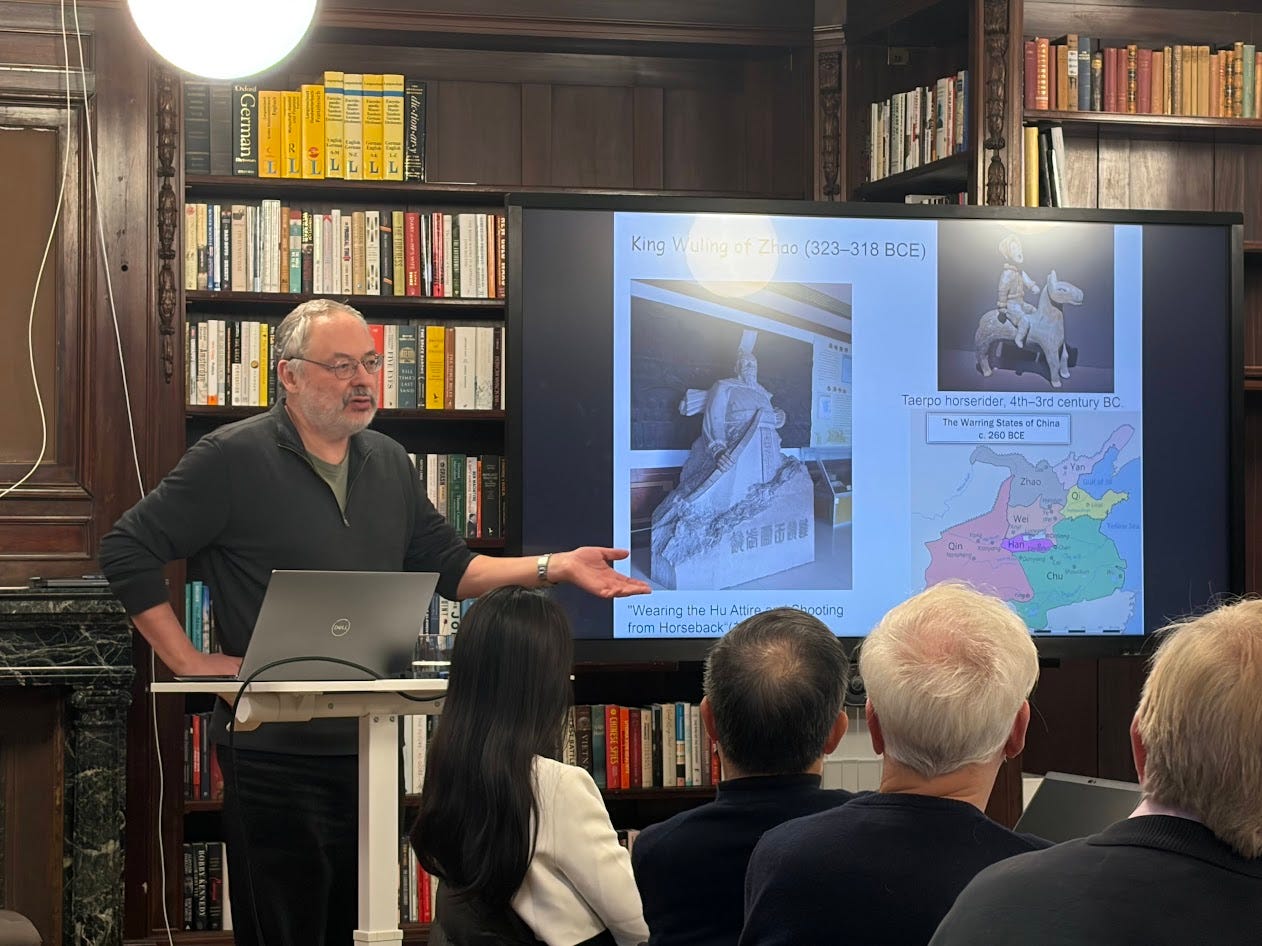New databases and testing theories of social evolution
A CSH Workshop
Yesterday and today I ran a workshop, “Exploring the synergy between new massive historical and archaeological databases for testing theories of social evolution.” This workshop was co-organized by David Wolpert of the Santa Fe Institute and myself and took place at the Complexity Science Hub (CSH). I am sharing details below as it may be interesting to my readers to gain a little insight into what scientists, like myself, do.
Workshop Description
The idea of this workshop emerged as a result of recurrent discussions over the past 3–4 years between research teams at the SFI (Wolpert, Kohler, et al.) and at the CSH (Turchin and Kondor). Over this period of time a number of new massive historical and archaeological databases have been constructed and published. The quantity and quality of data, as a result, suddenly reached and exceeded a synergistic threshold, allowing us to empirically test a variety of theories of social evolution. These databases include Seshat (led by Turchin), GINI (Kohler), archaeology of ancient China (Chen), caloric suitability of agricultural crops (Ozak), cultural production (Baumard), and more. By bringing together data from these diverse databases, we can test a number of key theories in social and cultural evolution.
1. What was the role of warfare in the evolution of large-scale complex societies? Was it the most important causal factor/evolutionary driver, compared to other theoretical alternatives?
2. What are nonlinear feedbacks (if any) between social scale and collective computation capacity of societies? Are there universal features of the long-term development of human societies?
3. What evolutionary drivers explain rise/decline in economic inequality? In turn, how does increasing inequality affect the stability of governance?
4. What specific role did agriculture play? In particular, was the important factor agricultural productivity (measured in tons or calories per ha per year), or crop type (grain versus tubers)?
5. What were diverse impacts of technological advances on state formation? In particular, did different technological advances promote either more egalitarian, or more despotic states?
6. Why do certain ideas or practices—like democracy or moral religions—arise in specific historical contexts?
Although the new availability of data is very promising, significant barriers for using them in testing theories remain. The most significant obstacle is linking diverse variables, quantified in different databases, by finding “common denominators,” spatio-temporal units, such as settlements and polities. Currently there are no agreed upon methodologies for accomplishing this, partly because the databases are very new. Another question is, what analytical and statistical methods we should use to test theories once we succeeded linking variables. This workshop will explore both questions.
Workshop format: a mixture of formal talks (30–35 min duration + 10-15 min questions) and discussions (topics are tentative and can be modified during the workshop, discussion leaders in parenthesis)
Agenda
Tuesday, Nov. 11
9:00 Introduction (Turchin)
9:15 David Wolpert: Modeling human social systems as distributed computational systems
10:00 Matilda Peruzzo: Analysis of coevolution of social scale and computational capacity using Seshat data
10:45 Coffee Break
11:00 Hajime Shimao and Seungwoong Ha: How can fitting stochastic differential equations to time series data help us understand the mechanisms driving dynamics of social systems?
11:45 Youngkyoung Bae: Stochastic Dynamics of Democracy, Inequality, and Economic Growth: A Drift-Diffusion Analysis of Cross-National Data
12:30 Lunch
14:00 Tim Kohler: Tracking the Relationship between Economic Growth and Wealth Inequality Thousands of Years Before Simon Kuznets
14:45 Nicolas Baumard and Charles de Dampierre: Quantifying human development in the very long run
15:30 Break
15:45 Omer Ozak: Biogeographical Constraints and the Dynamics of Social Evolution: Integrating Caloric and Mobility Indices
16:30 Discussion: how can we integrate computational models with data analysis? (Jim Bennett and Daniel Kondor)
17:30 Adjourn
19:00 Workshop dinner
Wednesday, Nov. 12
9:00 Clair Yang: Bronze, Iron, and State Formation in Antiquity
9:45 Chen Zhiwu: Stones of Power: How Ground Stone Weapons Led to Early Complex Societies in Neolithic China
10:30 Break
11:00 Marcus Hamilton: Theories of Computation in Human Affairs
11:45 Discussion: Integration of archaeological data (Yuqi Chen)
12:30 Lunch
14:00 Peter Turchin: Combining formal statistical analysis with “natural experiments” for testing causal explanations in history
14:45 Discussion: How can we integrate the various data discussed in this workshop with Seshat? (Pieter François)
15:30 Break
15:45 General Discussion (Peter Turchin)
17:00 Adjourn



Sounds amazing. I'd be v interested to see any materials on Tim Kohler's topic, if they're available. (I've spent some time with his 2018 book.)
(Modern econ models are constructed such that even extreme wealth concentration really *can't* have any significant negative impact on economic growth. I've done some modeling work based on different constructs, suggesting quite otherwise.)
This is amazing.